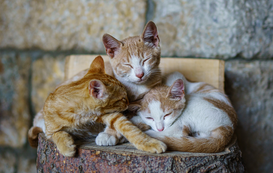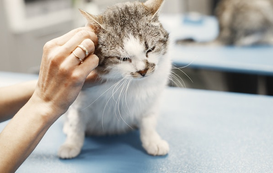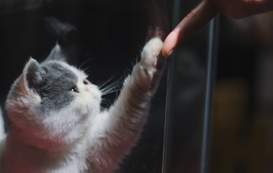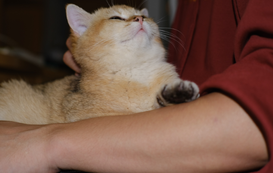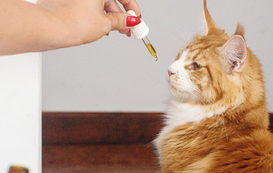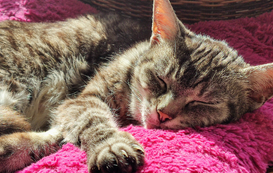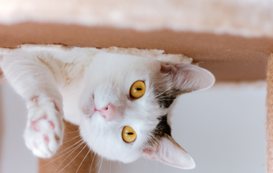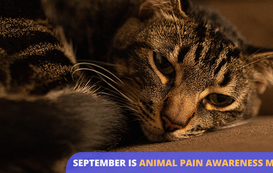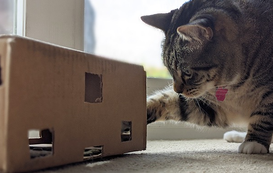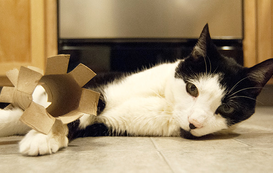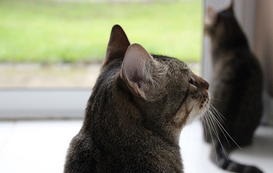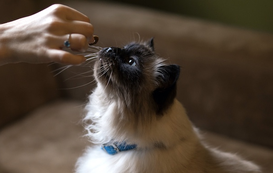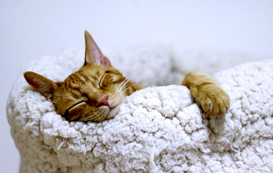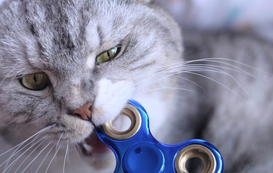Many people say you can't discipline cats - and there's certainly a reason why this saying has become a cliche. Cats can often seem independent, stubborn, and even rambunctious. But when it comes to maintaining your household, we all have needs and parameters that our cats need to follow. So what does it look like to keep our kitties from knocking things over, having litter box issues, biting us when they're mad, or other undesirable behaviors?
There are, in fact, good and bad ways to train or discipline your cat.
One thing is for certain: cats are brilliant, socially-aware creatures, and their love and respect for you as their cat parent is the main factor for why they act the way they do. And without being defensive, we as their owners must recognize our shortcomings and offer them the best life possible! The cats, after all, don't always understand the things they do, and it's important for us to meet them halfway and teach them how to act.
The first way we do that, perhaps, is by loving them. Compassion and empathy are key when learning how to discipline our cats, and it's best to rely on those as your instinct when trying to educate your furry friends. While talking more firmly, coming off more aggressively, or generally being punitive may sometimes work with our fellow homo sapiens, felines don't exactly respond well to this kind of behavior.
The second way to meet your cats halfway on discipline and education is through their structures and routines! Namely, offering them regular patterns to expect each day, giving them plenty of attention, and using food and other means to associate with good behaviors (or the behaviors you want them to do) can all help immensely when trying to control your cat. As mentioned above, these all require some work on your part as the owner, but the outcome is worthwhile. We have to reinforce the good behavior when it happens, stop the bad promptly when it happens, and make it difficult for them to keep doing the things we don't want them to.
So with all of that being said, here are 6 tips for disciplining your cat!
1. Pay attention to how your cat loves
Paying attention to your cat's love language will tell you all about what they want and need! Remember that your relationship with your cat will largely determine how well they obey house rules, and knowing what they want (food! play! attention!) can help immensely with the decisions you make about how to handle their behaviors. In general, watching how your cats react to their environment can make a huge difference in how you teach them, and providing them with positive reinforcement in ways they understand can help them keep up with household expectations.
2. Be gentle, non-punitive, and thoughtful in your teaching
Training your cat can be done, and some even say it's life-changing! Whether you're teaching your cat specific tasks or just generally helping them understand what you need from them, keep in mind that cats respond better to a relational approach than a punitive, or even disciplinary, approach.
All of this goes to say that, even if your cats are surfing the counter, it's just as effective to pick them up softly and set them down as it is to yell, hiss, use a spray bottle, or otherwise at them, and maybe even more effective in the long run - you can't, after all, police the counter 24/7, so stick to the method that preserves your rapport with your little buddy. Your relationship with your cat defines everything they do, and if you're clever in the way you go about positively reinforcing them or preventing them from certain behaviors, you'll both benefit in the end.
For example, you can set up tape and aluminum foil, or something else sticky and uncomfortable, on the edges of the counter, and the next time your counter-surfing cats jump up, they'll be too freaked out by the change in circumstance to want to do it again. While this isn't true 100% of the time, it's a helpful rule of thumb in the way cats learn best!
3. Use positive reinforcement
Just like with humans, cats learn well from positive reinforcement and positive association. This means offering rewards to your cats alongside desirable behavior, helping them associate the two and, thus, perform the desired behavior more often.
Food is a major factor in the use of positive reinforcement for cats. If you can help them associate certain behaviors, or even other animals, with their food, you'll help them have positive associations with these things and they'll begin to naturally feel comfortable with them.
4. Take time out of your day to give them attention!
To put it lightly, cats are instinctual beasts with a desire to hunt and kill. This renders both a need for food, to satisfy the ultimate goal and motivator for animals, and play, to simulate hunting and encourage exercise. Tending to both of these behavioral needs will also encourage your feline friend to behave the way you want. If you're playing with them actively and attentively throughout the day, they're more likely to want to lay around and be snuggly when you're doing the same at night, instead of running up the walls and ruining your night's sleep.
5. Create structures and routines
It's no secret that cats function best with routines. Helping your cat know what to expect throughout the day is another important aspect of minimizing bad behavior. Whether you take them out for a walk on the leash after you feed them every day, or you play with them right when you get home from work for 30 minutes, your cat will notice and begin to appreciate these routines.
6. Make sure your family, roommates, and/or sitters are informed
Be sure to include any specific practices you do with your cat with anyone living in your home, in the neighborhood (for outdoor cats), or with sitters on Meowtel. Any consistency you can help build into your cat's life will benefit you each greatly, and it will also encourage your cats' good behavior in front of guests in the future.
Disciplining Your Cat = Working With Your Cat
Disciplining your cat isn't quite the same as training dogs or dealing with any other animal - cats are a strange breed with a lot of intelligence, love, and some specific needs. With a little extra attentiveness and thoughtfulness, any cat parent can help their cats thrive without the need to traditionally discipline them. It takes just a small amount of patience, and a large amount of love for your cat, which we at Meowtel know you already have.





